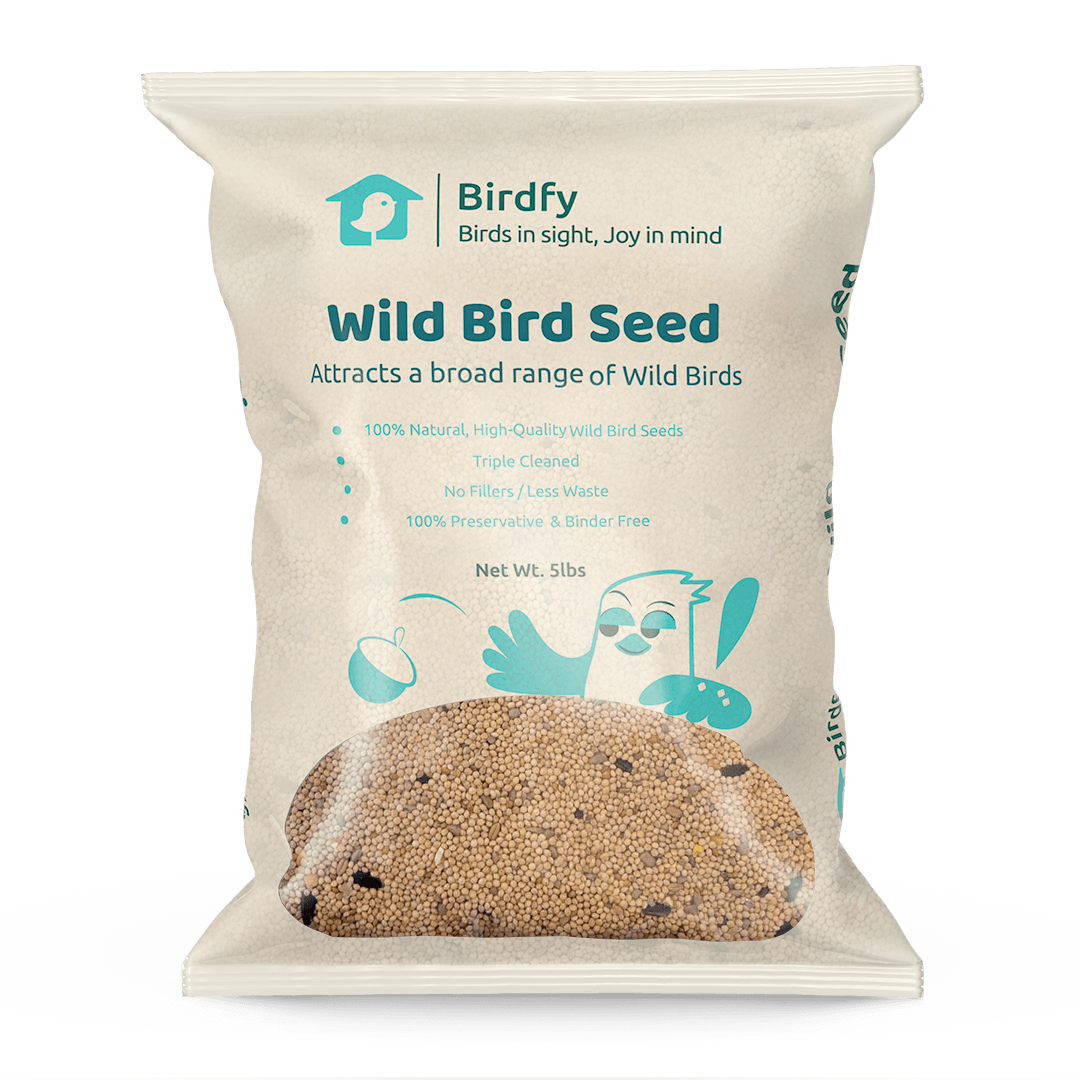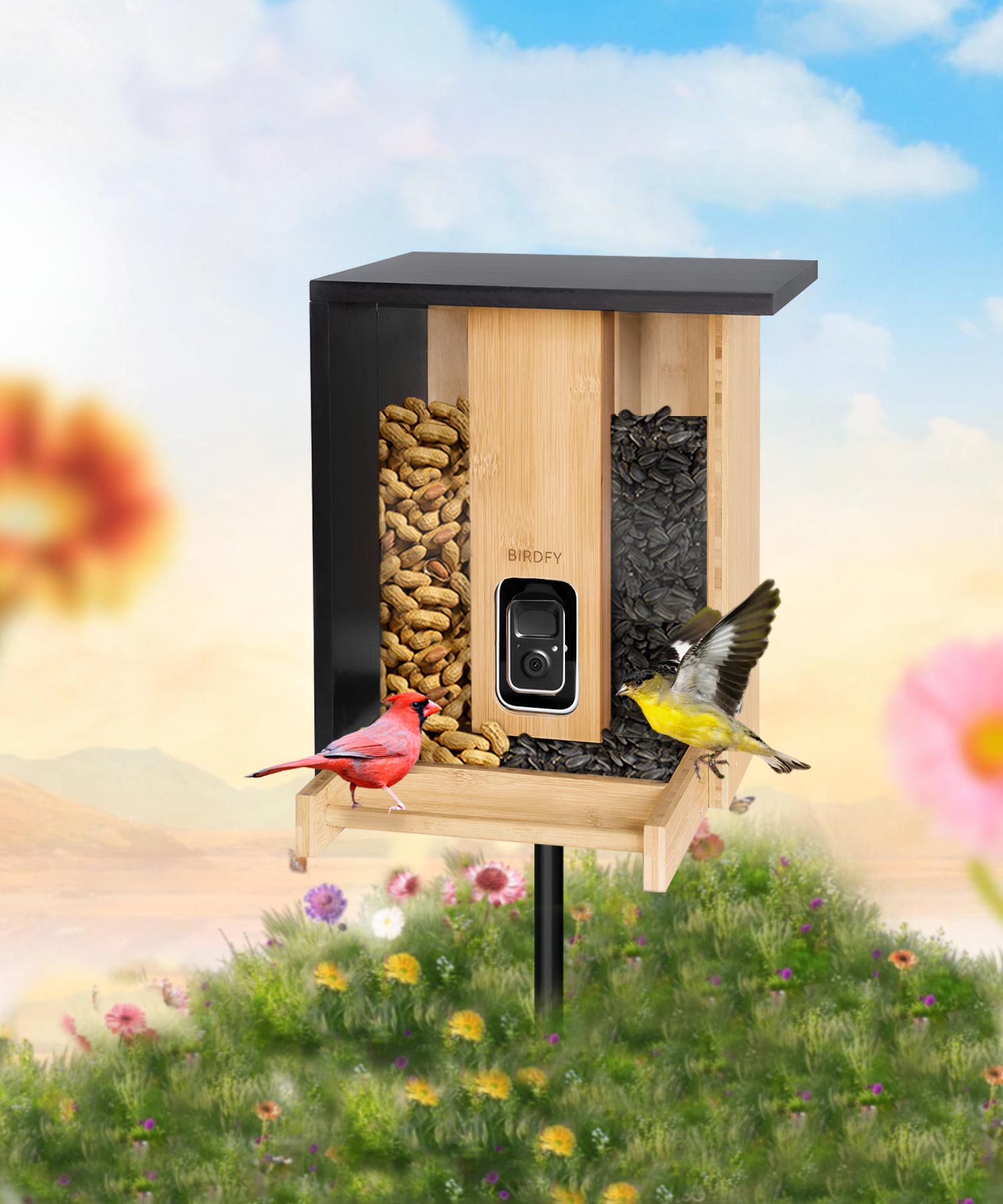Top 15 Vegetables & Fruits That Will Kill Your Bird
Birds, especially pet birds, have very sensitive stomachs and should not be fed on what humans take for granted. We might think we are giving our feathered friends a tasty snack, but some vegetables and fruits can be dangerous and even lethal to the birds. This is essential information for every bird owner because it will help determine what foods harm the pets.

This article teaches you about the top 15 vegetables & fruits that will kill your bird. The foods listed are prevalent in many households and maintain toxic quantities of nutrients or toxins fatal to birds. Some of them can cause symptoms to manifest right away, such as trouble breathing or seizing, while others are chronic. Knowing which foods are poisonous will assist in minimizing fatal errors to the minimum level. Read on so your favorite pet stays healthy and happy.
1. Avocado
Avocado is one of the most toxic foods you should avoid feeding your bird. The fruit is generally harmful to birds, as is the skin and the pit of the fruit, and contains a toxin called persin. Hazardous even in small quantities, its impact ranges from respiratory problems and heart complications to death.

Symptoms of avocado toxicity in birds are poor reactive packed cells, and often, the birds may die. It is preferable not to feed your bird avocado in any way because its risks greatly outweigh the advantages of adding avocado to your bird's diet.
2. Tomato Leaves and Stems
Although the pulp of an appropriately red tomato is exotic and non-toxic to birds in small amounts, the stems, leaves, and other green parts contain solanine.

When ingested solanine, you get gastrointestinal upset, weakness, and confused conscious state in birds. Since tomatoes are toxic to birds, remove all stems and leaves when feeding them tomatoes and ensure the bird does not access the plants in the garden.
3. Onions and Garlic
For birds, raw onions, garlic, and cooked and powdered onions are poisonous. Some of these vegetables have thiosulfate, which is toxic to the red blood cells of a bird and may cause hemolytic anemia.

Signs include Listless, Vomiting, Diarrhea, Dyspnea, etc. Though not listed here, pardon compounds in small amounts may accumulate and be toxic; thus, you should avoid feeding your bird any onion or garlic.
4. Chocolate
Chocolate is lethal to birds since it contains Theo bromine, which remains undigested in birds' stomachs. Just a couple of pieces of chocolate have been reported to cause vomiting, diarrhea, rapid heartbeat, and seizures sometimes. The extent of the symptoms varies with the type and quantity of chocolate ingested and cocoa-containing chocolate has relatively higher Theo bromine content than milk chocolate. Birds may also feel restless and tremble.

Bird owners must ensure that they do not leave any chocolate products around. They particularly avoid giving birds chocolate, biscuits, cakes, etc., because the poisonous substance in chocolates is lethal to birds.
5. Apple Seeds
While the rest of the apple is good for birds, the seeds are toxic and poisonous. While apple seeds contain trim levels of cyanogenic glycosides, they can be ingested to free cyanide.

Cyanide blocks the effect of oxygen so that breathing increases rapidly, seizures, and at times, it may lead to death. It is recommended always to core apples and ensure that there isn't any remnant left in the apples you feed your bird.
6. Mushrooms
Wild species of mushrooms are generally dangerous to birds. Some are poisonous and can lead to digestion problems, liver failure, and death. Mushroom poisoning's signs are fatigue, vomiting, and neurological signs like shaking or fits.

Since there are so many types of mushrooms out there, and some are toxic while others aren't, it is recommended that mushrooms not be fed to your bird at all.
7. Potato Leaves and Stems
Similar to tomatoes, potatoes belong to the nightshade family and have solanine in their leaves, stems, and other green parts of the plant. The white parts of the potato fall under safe cooking enjoyment, and the green parts harm birds when ingested.

Symptoms of solanine poisoning are drowsiness, confusion, and dyspnoea. Never letting your bird near potato plants or green potatoes is highly recommended.
8. Cherries, Peaches, and Plums (Pits)
Cherries, peaches, plums, and other stone fruits contain amygdalin in their pits, which, if ingested, can turn into cyanide. Cyanide is toxic to birds, just like apple seeds. Cyanide poisoning symptoms include difficulty respiration, high heart rate, and death.

Remember to de-pulp and ensure no pit residue on the fruit's flesh when feeding your bird these fruits.
9. Raw Beans
It is also toxic for birds and is found in raw or undercooked beans, especially red kidney beans. Toxicity in even small quantities can be lethal and lead to vomiting and diarrhea.

The toxin is heat-sensitive and gets neutralized during cooking, so it is recommended that pet birds should not be fed raw beans. Even safe, cooked beans may be challenging for birds to digest in large quantities.
10. Spinach and Kale
While these two vegetables are generally safe for human consumption, spinach and kale contain high levels of oxalates, which can react with calcium in the body of a bird.

This is a result of calcium deficiency and can cause the bird's skeleton to become brittle or affect their nervous system. Oxalates are not friendly to the health of your bird; hence, your bird should not consume too many foods rich in oxalates.
11. Cabbage and Broccoli
Kale, cauliflower, and other related greens or cabbages also have ill effects on birds when consumed frequently. These vegetables disrupt the proper functioning of the thyroid gland by lowering the level of iodine in the body, causing goiter.

While consuming modest amounts of these veggies is okay, consuming big amounts or frequently can cause gastrointestinal distress and imbalance electrolyte imbalances. Unlike raw food items, cooked parts are often easier for birds to swallow or eat since they require comparatively small chunks.
12. Cheese
Well, you will not be surprised to find that dog owners feed several human foods to their birds, including cheese. Saying that cheese is safe for your bird is a huge mistake, as it is a dairy product and can cause severe harm to your bird.

Cheese should not be given to birds since they do not possess a digestive tract adapted to the processing of dairy products, which leads to severe health complications and illnesses in the future. For any responsible bird owner, knowing why cheese is poisonous and which food you can feed your bird is critical.
13. Eggplant
Like tomatoes and potatoes, eggplants are categorized as nightshade and have solanine in their leaves and stems.

These parts of the plant are dangerous to birds since they can cause digestive complications and other effects. The flesh of the eggplant is generally ok to feed, but do not feed raw eggplant or any part thereof except for the flesh.
14. Apricot Pits
Like the kernels of cherries and peaches, apricot pits contain cyanogenic glycosides, which produce cyanide when consumed—the toxicity results in labored breathing, convulsions, and fatality for birds.

Apricot pits should, however, always be separated from the flesh before feeding the fruit to your bird; in any given instance, the pits should not be within the reach of birds.
15. Pepper Seeds (Hot Peppers)
Birds can eat compounds like capsaicin, but pepper seeds, including those from hot peppers, could immensely upset your bird's stomach.

Capsaicin is only non-lethal to birds, but whole seeds may be irritating or produce other health complications when ingested. Avoid feeding the wings and seeds; remove seeds from the pepper's flesh before feeding your bird.
Conclusion
What your bird eats dictates its overall health and lifespan; therefore, it is essential to feed your bird safe food. Unfortunately, they are exposed to them from common household fruits and vegetables such as avocado, toxicity from the tomato leaves, and pathogenic risks from raw beans.
Share
































